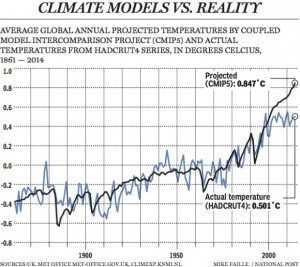I was reading a few moments ago the confessions of a Joseph Boutilier, of the Loonie Politics aggregator site: “When it comes to climate change, we must all be leaders “.
Boutilier meditates on the issue of how to get people motivated when so much cynicism pervades the public. {Hold your nose -purple prose alert}
The pitfalls of the quest for climate action can also become our strengths. Now that a real groundswell of awareness surrounding the need for urgent action has been translated into some effective, visible, exciting campaigns, the activist arm of the climate movement will mature with more bravado, empowerment and recognition than we’ve seen since the Al Gore bubble burst close to ten years ago. Combine that with the undeniable passion of many climate-concerned opposition politicians and the high level of guidance and expertise offered through the same scientists and educators who first raised the issue to the public’s attention – smart, moral, dedicated people like James Hansen, George Monbiot, Andrew Weaver and David Suzuki – and the potential for a grassroots movement in Canada with pinpoint ambition, poise and influence is unparalleled among global causes.
Boutilier writes better than he thinks. Apart from the reasons he cites, there are several reasons (note the word reasons, and not just causes) why interest in “climate change ” has declined.
Global warming is at bottom a scientific proposition. It asserts that by far the preponderant cause of observed global warming is carbon dioxide emissions into the atmosphere. Being a scientific proposition, it can be falsified. Humans have been pumping CO2 into the atmosphere steadily since the industrial revolution. The proportion of CO2, while still minuscule, is rising towards or has surpassed 400 parts per million. According to the theories of the warmists, there ought to have been a steadily observed increase of global average temperature to accompany the rise in CO2, since the causal relationship between CO2 and global warming is the core of the theory.
The warming has not been observed for something like 17 years. Climate change is basically a computer-modelling game, in which one matches a theory of climate against observed historical data, and makes projections into the future of what will happen if the model is true.
There is a rough but not exact correspondence between most computer models and the recent past. To say this rudely, the models do not even “predict” the past very well. There has been no correspondence between the predictions and the observed facts for the last 17 to 26 years.
Accordingly, it can be concluded that the scientific basis of global warming has been significantly damaged by the failure of models to correspond to observations.
 The black line above shows the mid-point of computer model predictions; the blue squares show what has been observed.
The black line above shows the mid-point of computer model predictions; the blue squares show what has been observed.
So let us return now to the credal statement of Joseph Boutilier and observe the poor fellow’s passion:
I realized that what the climate movement needs isn’t more extraordinary people. It needs more ordinary people with extraordinary passion. Like the first time I learned how to ride a unicycle, I had to let go of my own expectations and reservations to gain the impetus for action. I had to see that I wasn’t especially capable, creative or resilient to discover that none of that mattered. To realize that my heart wouldn’t be silenced by any logical excuse not to learn how to balance on one wheel. And that my heart couldn’t possibly beat stronger than it does when I imagine the slim chance for a dramatic shift in our approach to climate justice.
What’s more, if such a shift does occur, if such a movement could be sparked by any number of ordinary folks like me, it wouldn’t just save the human race from famine, hurricanes, typhoons, floods, ocean acidification, desertification, heat waves, war and conflict, societal – and possibly species – collapse. It could also restore our faith in the potential of our political system. It could demonstrate the value of our parliamentary democracy. Better yet, it could transform government through a process of peaceful, consensual, fundamental shifts in influence, aim, and connectedness with citizens to reflect the needs and desires of the rising generation.
How many tropes are touched upon here?
- saving the world
- saving the human race
- justifying parliamentary democracy
- getting right with the younger generation
- achieving climate justice
Boutilier’s screed is the expression of the romantic spirit in man, the quest for authenticity, the desire to transcend and also perfect the Self. All very German Romantic circa 1820. Global warming or climate change is just the cover for an essentially religious desire on his part to merge with the creative possibilities of the Spirit moving through history.
All very Hegelian. All drivel. He will be embarrassed by what he wrote within fifteen years.
I would like there to be a new ice bucket challenge: I challenge Joseph Boutilier and his band of Romantics to blather on about the horrors of global warming while having a large bucket of ice-water dumped over their heads in freezing temperatures. There will be no sauna or fire to warm them afterwards, lest CO2 emissions increase. They will then be offered the microphone to urge us to climate action. Most coherent sermon wins. It should be a hoot on YouTube.
Then we will see how well “smart, moral, dedicated people” like Mr. Boutilier continue to enthuse about climate change and political engagement.
______________________________________________________
Since the decline of Bourque Newswatch, Loonie Politics is doing a reasonable job of aggregating the headlines and the columnists.

